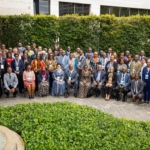
Why an Open Book Policy and full disclosures Are Not Threats to Alleged Corruption Investigations, but a Pathway to True Justice.
Across the African continent, an increasingly common but deeply damaging misconception has begun to influence the behaviour of certain public institutions: the belief that releasing audited financial statements during an ongoing investigation undermines the inquiry. In the name of caution, and sometimes in the name of internal “procedure”, institutions delay or withhold documents that, by statute and international governance norms, should already be in the public domain. This belief does not protect institutions. It weakens them. It erodes confidence, compromises credibility, and diminishes the moral authority of the very entities meant to serve the public good.
The inconvenient truth is that transparency has never been the enemy of accountability. It is the foundation on which accountability stands. Without openness, investigations become directionless; without disclosure, suspicion grows; without timely audited statements, governance collapses silently long before wrongdoing comes to light. Africa does not need to guess whether transparency strengthens or undermines investigations. The evidence is abundant both within and beyond the continent.
South Africa’s post-apartheid governance architecture, for all its criticisms, remains one of the most structurally transparent frameworks on the continent. During the State Capture Inquiry, large state-owned enterprises such as Eskom, Transnet and Denel continued to publish their audited financial statements annually. These were not withheld. They were released publicly while key executives were under active forensic scrutiny. The Zondo Commission relied heavily on these published financials to expose procurement irregularities, identify patterns of abuse, and map systemic loopholes. Investigators benefited from a factual baseline. Without the statements, the Inquiry would have faced unnecessary blind spots.
Kenya provides further evidence. The Office of the Auditor General consistently releases statements on time, regardless of ongoing investigative processes. Many of Kenya’s landmark accountability breakthroughs, including the National Youth Service scandal uncovering nearly USD 80 million in procurement fraud, emerged directly from discrepancies flagged in publicly available audit reports, not from secrecy. Rwanda represents disciplined consistency in public financial management. Government ministries and state institutions publish their audited financial statements on time every year, without exception. Investigations, when necessary, proceed independently of disclosure. This predictable transparency has contributed to Rwanda’s low corruption ranking, number 4 in Africa according to Transparency International, and to its reputation for institutional reliability.
Nigeria demonstrates that even in complex governance environments, disclosure and investigation can coexist. Agencies such as the Nigerian Ports Authority, the Pension Commission and the Central Bank continued to publish annual financial statements while undergoing review by the Economic and Financial Crimes Commission. Investigators used these documents to validate or challenge internal claims, trace unusual financial flows and build prosecutorial evidence.
Beyond Africa, global regulatory standards reinforce the point. In the United States, the Securities and Exchange Commission (SEC) requires publicly listed companies to publish audited financial statements annually and quarterly. The rule does not change because of ongoing investigations. In fact, during the investigations into Enron and WorldCom, financial disclosures continued as required. These disclosures became pivotal in exposing inconsistencies and accelerating justice.
In Europe, where governance structures are mature and accountability systems rigorous, the European Union’s Transparency Directive requires annual financial reports for large corporations and public bodies. Even during the Danske Bank money-laundering probe, one of Europe’s largest financial scandals, the bank continued disclosing audited statements. Investigators from Denmark, Estonia and multiple EU bodies relied on these disclosures to piece together how EUR 200 billion in suspicious transactions moved through the system. Transparency did not impede investigation; it empowered it.
Singapore, a global standard-bearer for integrity and efficiency, also treats disclosure as sacrosanct. Government-linked companies such as Temasek Holdings and Singapore Airlines publish detailed annual reports irrespective of political, regulatory or investigative circumstances. This transparency forms part of the governance DNA that helped Singapore grow from a small maritime economy in 1965 to a global trading hub handling over 37 million TEUs of containerised cargo annually and consistently ranking among the world’s least corrupt states.
The evidence is clear: Transparency strengthens investigations. Opacity weakens them. Unfortunately, Africa’s governance challenge is compounded by another recurring pattern: the tendency to interpret strategic shifts by new administrations as retroactive evidence of wrongdoing. When leadership changes, strategy often changes. This is normal. In the United States, policy reversals occur during almost every transition from Obama to Trump, from Trump to Biden, yet such reversals are not treated as criminal accusations. They are recognised as political choices, not proof of executive misconduct.
In the United Kingdom, changes in industrial, trade, or fiscal policy are not considered evidence that prior boards acted improperly. The principle is simple: strategic divergence must not be converted into retroactive guilt.
Africa’s governance maturity requires the same clarity. A change in policy direction does not automatically suggest that previous executives or boards engaged in wrongdoing. Decisions taken years earlier were made based on the strategic priorities, economic conditions and long-term projections available at the time. When every shift in direction is weaponised as an accusation, Africa loses experienced professionals. Board members operate fearfully. CEOs become risk-averse. The quality of public service deteriorates.
The cost of delayed disclosure is far higher than most realise. When audited statements are withheld, boards lose visibility into performance. Citizens lose trust in their institutions. Regional and global markets question the reliability of governance structures. Investors price in risk, reducing capital inflows. Professionals within institutions become demoralised. Talent leaves public service or avoids it entirely. Across Africa’s national airlines, energy utilities, transport authorities and petroleum institutions, collapse rarely happens in public. It happens silently, over years of delayed reports, withheld financials, and opacity that mask structural decline until it becomes irreversible.
Audited statements offer investigators a factual baseline. They enable tracing of unusual flows, identification of procurement irregularities, analysis of asset movements, and verification of internal documentation. The absence of audited statements forces investigators to work in the dark.
Botswana and Mauritius consistently rank among Africa’s best-governed states largely because both nations insist on the timely publication of audited financial reports. Their institutions treat transparency as non-negotiable. This discipline is a key reason Botswana maintains one of Africa’s highest sovereign credit ratings, and Mauritius remains a regional financial services hub.
Africa needs to urgently strengthen this culture. A continent preparing to operationalise the African Continental Free Trade Area and fulfil the ambitions of Agenda 2063 cannot afford governance systems that treat transparency as optional. To attract institutional investors, multilateral financing, and private sector partnerships, Africa must anchor its institutions in predictable disclosure, fair administrative processes, and professional accountability.
This requires three non-negotiable commitments: First, audited financial statements must be published on time every year. Second, investigations must proceed independently, without obstructing disclosure or harming due process. Third, boards and executives must not be retroactively punished simply because a new administration prefers a different strategic direction.
Africa rises when institutions embrace openness. Africa stalls when institutions adopt silence disguised as caution, delay disguised as procedure, and secrecy disguised as prudence. Publishing audited statements is not an act of generosity. It is a foundational requirement of a functional state. Transparency does not weaken Africa’s anti-corruption agenda. Transparency strengthens it. It guides inquiry, protects institutions, reinforces credibility and builds public confidence. The future belongs to African institutions that embrace truth without fear.
Written by Professor Douglas Boateng
Chartered Director-UK | Chartered Engineer-UK | Social Entrepreneur | Governance and Industrialisation Strategist/Advocate| Generationalist|
- President Commissions 36.5 Million Dollars Hospital In The Tain District
- You Will Not Go Free For Killing An Hard Working MP – Akufo-Addo To MP’s Killer
- I Will Lead You To Victory – Ato Forson Assures NDC Supporters
Visit Our Social Media for More




